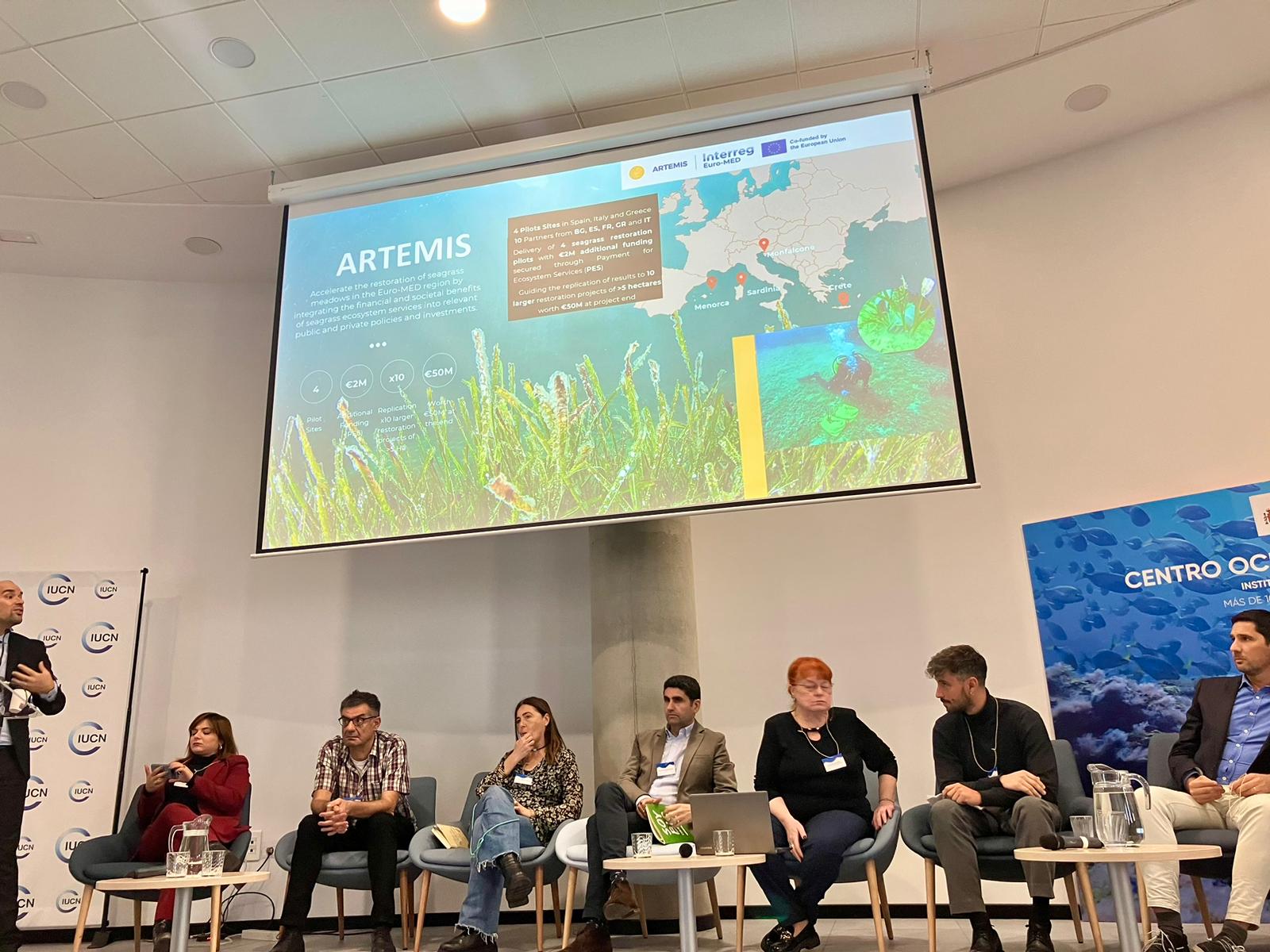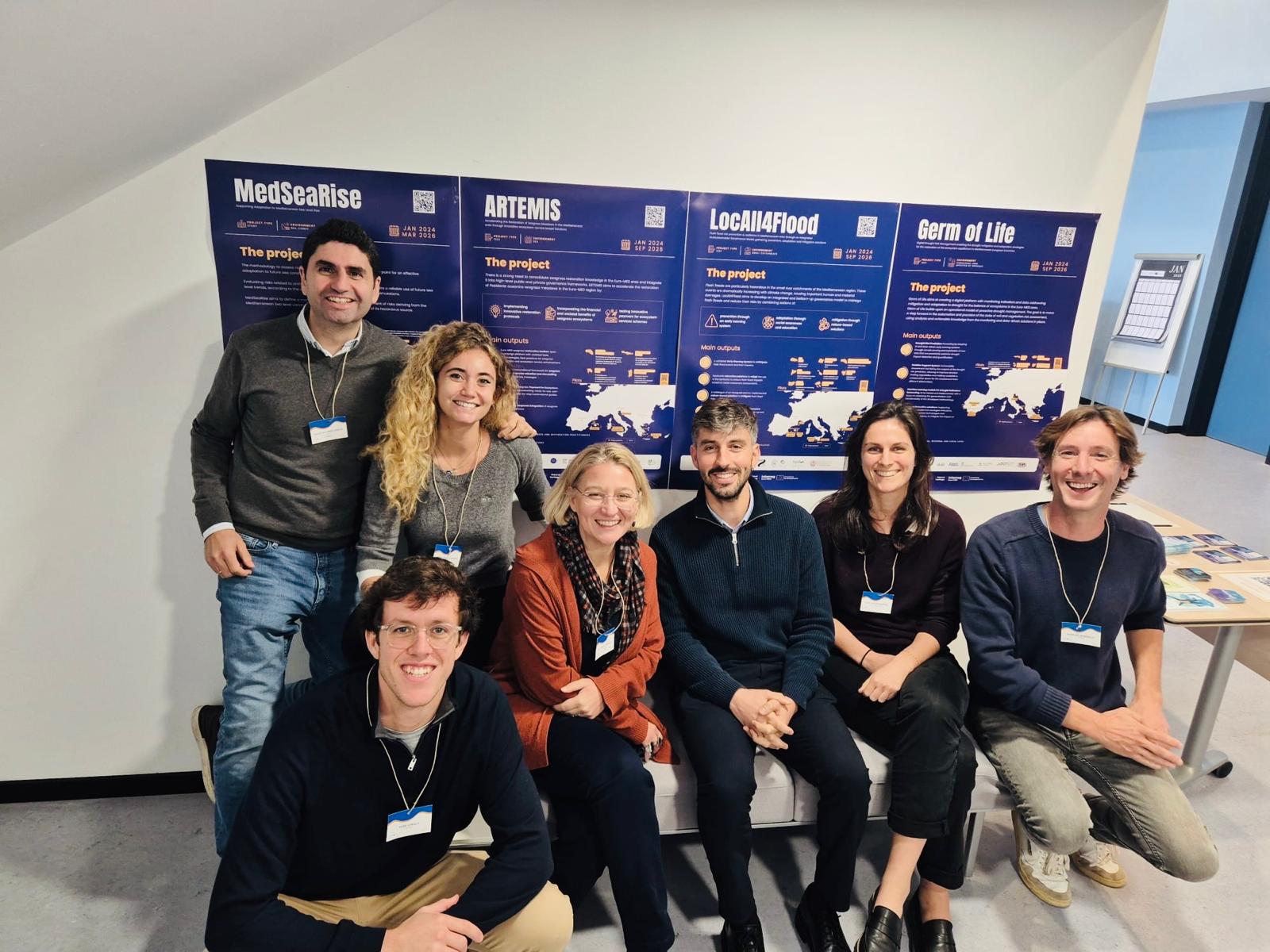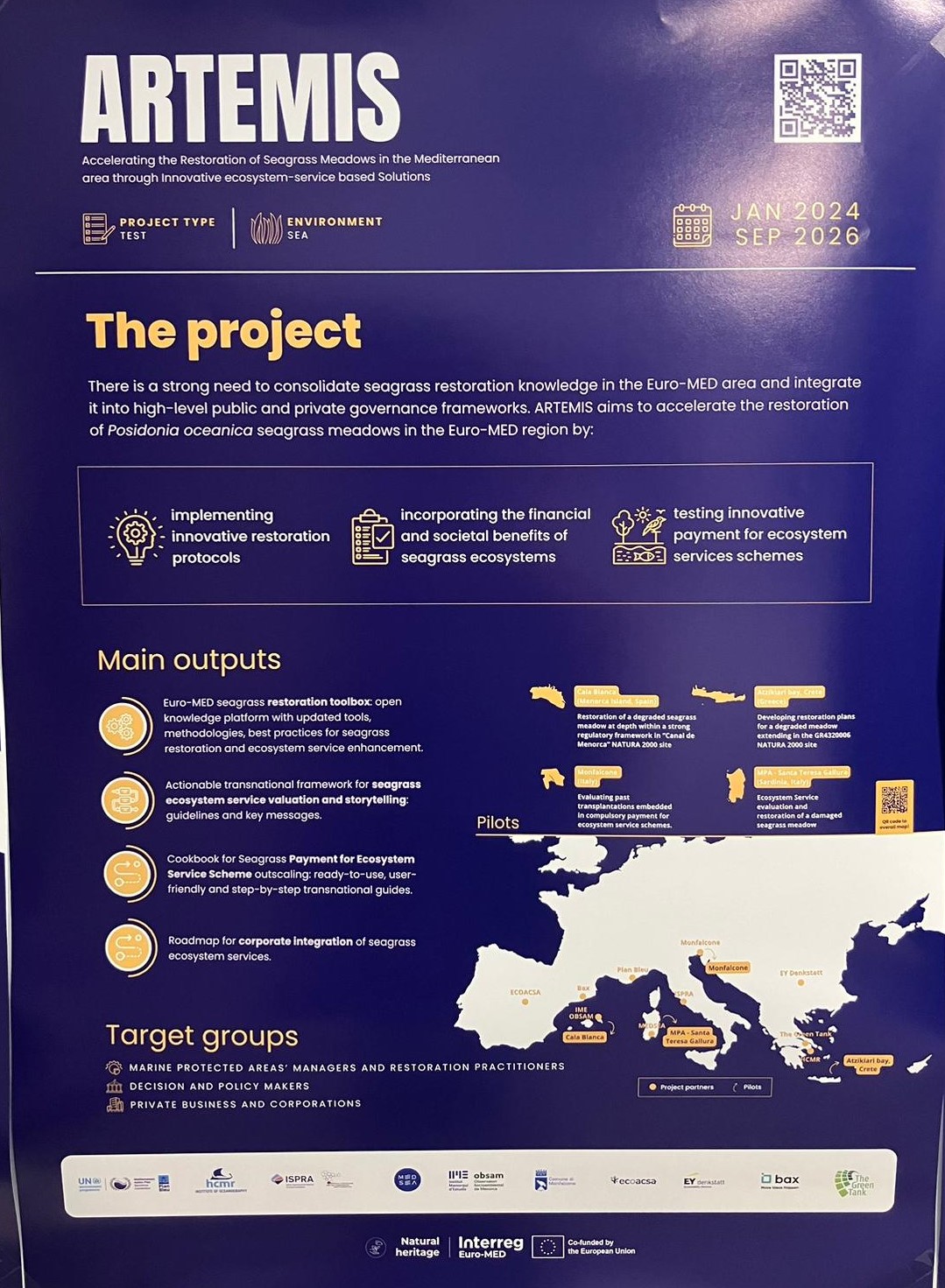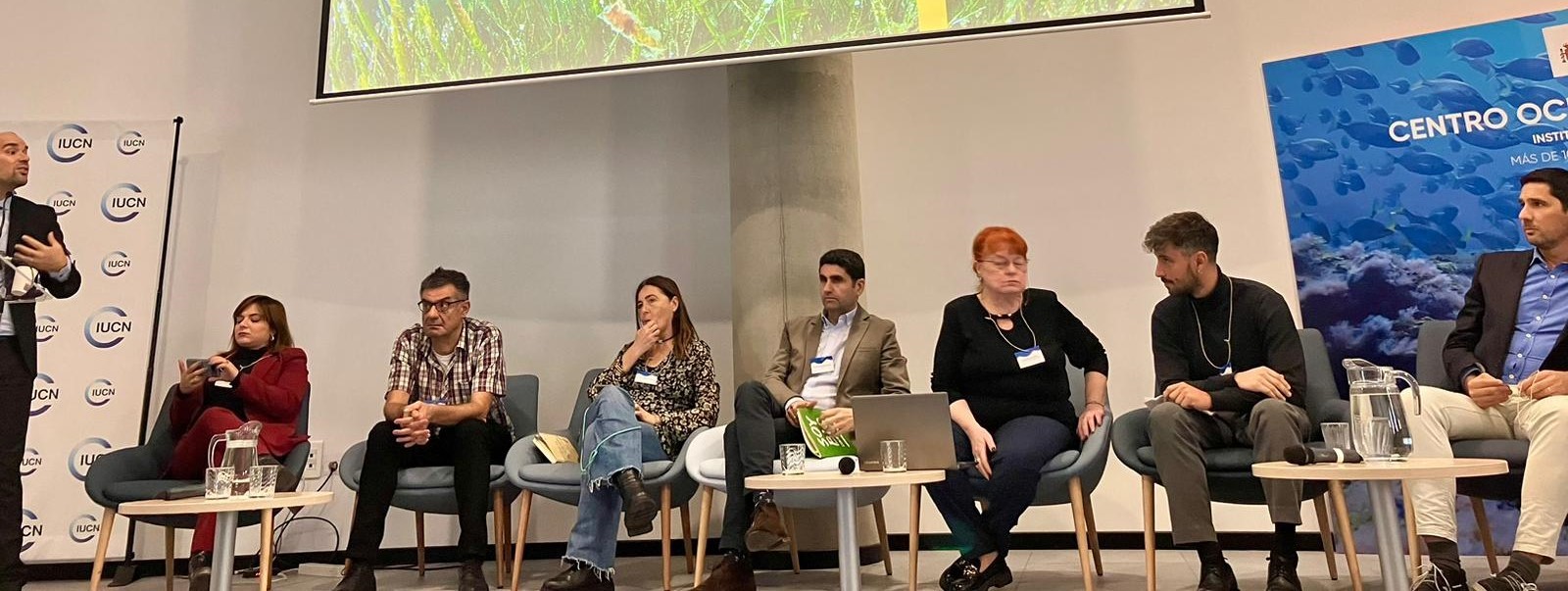Málaga hosted a pivotal event on November 28-29, 2024, for the Interreg Euro-MED 2nd mission: The Natural Heritage. The gathering brought together 150 experts, policymakers, and stakeholders from across the Mediterranean to discuss transformative strategies for ecological restoration. The event presented an agenda packed with high-level panels, roundtable discussions, and insightful presentations.
Javier Gutiérrez del Álamo, Director General of Environment and Sustainability at Málaga City Council, and Maher Mahjoub, Director of IUCN Centre for Mediterranean Cooperation opened the day by underscoring the urgency of implementing the EU’s Nature Restoration Law (NRL). This pivotal policy, which many countries have been working on for over a decade, seeks to restore 90% of degraded ecosystems by 2050 and enhance ecological connectivity as part of the broader EU Biodiversity Strategy 2030.
Followed by two engaging roundtables, the first delved into restoration insights in the Mediterranean region with speakers from numerous Mediterranean countries underscoring the importance of fostering local awareness and engaging civil society in conservation efforts.
The second roundtable From Policy to Action brought a practical lens to the day’s discussions, focusing on how policy frameworks can translate into tangible outcomes. The session featured many contributions including our ARTEMIS project represented by partners Arnaud Terrisse (Plan Bleu UNEP/MAP) and David Álvarez García (ECOACSA).
Arnaud Terrisse presented ARTEMIS four pilot sites (Menorca, Sardinia, Monfalcone, and Crete see what we do), highlighting their potential to implement innovative restoration strategies with local communities as he stated that ‘Mapping stakeholders’ interests and engaging them in the project plays an important role in defining a common vision to implement better measures at local scale’. He also presented the challenges faced in implementing restoration as well as the main policy and governance gaps that still need to be filled for effective protection of Posidonia meadows.
Later on, David Álvarez García delved into the financial aspects, discussing the need for reorienting investment flows through mechanisms and exploring how nature markets can be tailored to local contexts. “This ambitious initiative aims to harness the Mediterranean’s natural capital by developing market-based instruments (MBIs) that monetize ecosystem services such as carbon sequestration by Posidonia oceanica’ said Álvarez García, stressing the importance of linking biodiversity uplift with tangible economic benefits, making restoration a more compelling proposition for stakeholders.
“Breaking down silos to help people understand ecosystem services is crucial,” as he continues. “The extra benefits of restoration, when made tangible, can catalyze further conservation efforts.”
The event wrapped up with a collective recognition of the Mediterranean’s critical role in global biodiversity and the shared responsibility to safeguard its ecosystems.









